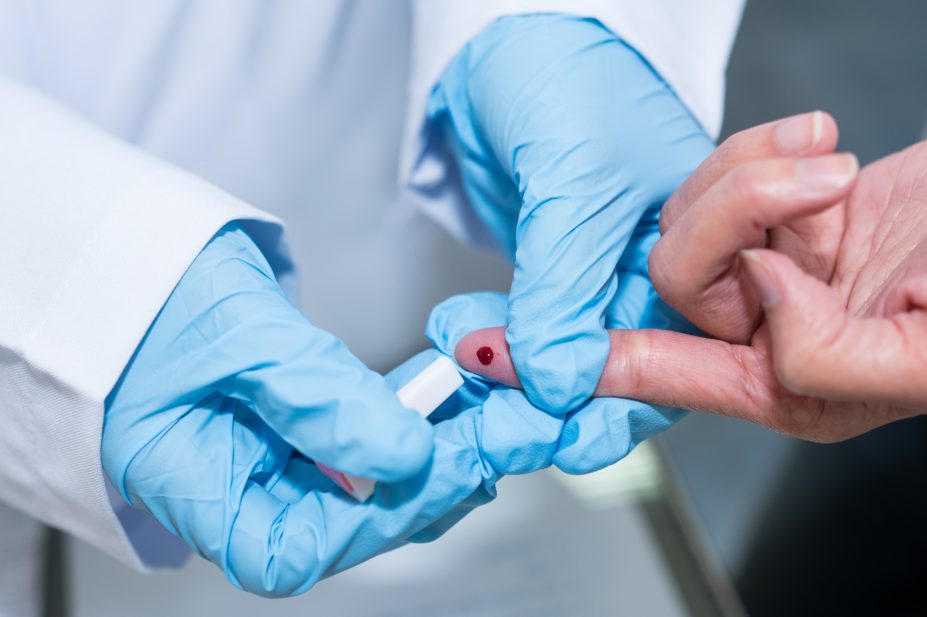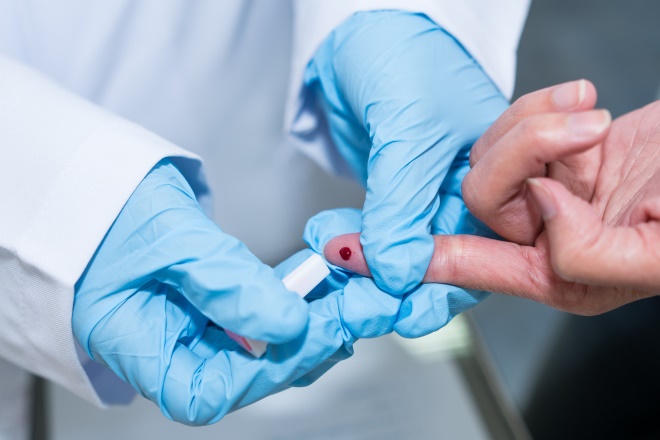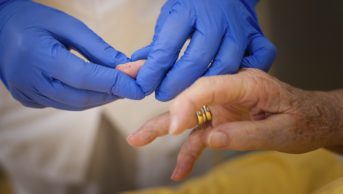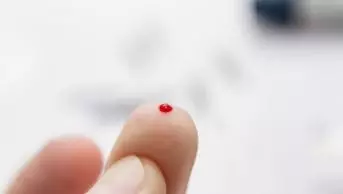
Shutterstock.com
Open access article
The Royal Pharmaceutical Society has made this article free to access in order to help healthcare professionals stay informed about an issue of national importance.
To learn more about coronavirus, please visit: https://www.rpharms.com/resources/pharmacy-guides/wuhan-novel-coronavirus

Source: Shutterstock.com
Finger prick tests have not yet been validated for use by Public Health England
The news that Abbott Laboratories has launched a new serology test to detect COVID-19 infection, and that Roche will do the same in May 2020, is very welcome. It is heartening that these large and experienced diagnostic companies have managed to rapidly develop a so-called “antibody test”.
There has been much media attention on the current UK testing regimen for COVID-19 infection — particularly regarding the government’s target of 100,000 tests per day by the end of April 2020. However, commentators have concentrated less on testing for those who may have had the infection; with the immunity this could confer, serology testing could be the more powerful test.
We do not know how many people in the UK have had this coronavirus. Although a large UK study was launched in April 2020 to investigate this, with additional testing still ongoing, it is a blind spot that prevents us from getting back to something that resembles normal life.
The official figures presented at the UK government’s daily briefings are based solely on cases admitted to hospital and do not include those in the community who have been infected. An additional complication is that there may be a very large number of people who have been infected but had no symptoms — estimates vary from 8% to 80%.
The restrictions that are currently in place to encourage social distancing exist to reduce the spread of infection, but many people — including NHS key workers — could be safe to go back to work if they could prove they had immunity to COVID-19.
The launch of any test is only the first step — they would need to be subjected to rigorous and independent validation before use on the general public
This testing could also open the door to the use of antibody-rich convalescent plasma from those who have survived the infection as a treatment for those in intensive care. However, the launch of any test is only the first step — they would need to be subjected to rigorous and independent validation before use on the general public.
It is easy to show that someone has antibodies to one or more of the proteins on the viral coat of COVID-19, but it is more difficult to show that those proteins are specific to COVID-19 and were not produced as the result of another coronavirus — a common cause of coughs and colds. Additionally, any test must measure the amount of antibodies capable of ‘neutralising’ an infection, in order to provide a reliable measure of immunity.
Both of these will be crucial areas to establish before any serological test can be rolled out.
We do not know how long immunity to COVID-19 infection lasts, although the signs seem good from other coronaviruses such as SARS-CoV-1, which confers immunity 17 years after infection. However, viruses are constantly evolving; an accurate test could be rendered obsolete if SARS-CoV-2 mutates in a way that causes the proteins on its coat to change. The false assurance of a failed test could be more dangerous than nothing at all.
Indeed, an object lesson is that the millions of fingerprick tests, mainly from Chinese manufacturers, bought by the UK government that have not been validated for use by Public Health England, despite officials raising hopes they could be available from Amazon and Boots in the near future.
There is a lot riding on the protein targets that diagnostic companies choose and it is not clear yet whether any of the tests developed so far will be able to be scaled up quickly enough to meet the demands of policy makers. The serology tests from Abbott Laboratories and Roche appear to be laboratory based, which is very different to a test kit being sent out in the post.
Aidan Fowler, deputy chief medical officer for England (and who is currently recovering from COVID-19) told an NHS England and NHS Improvement webinar on 22 April 2020 that the antibody test technology is “not where we would want it at the moment”, but that the situation is “rapidly changing”.
This is an unprecedented challenge. It will require co-operation and an enormous amount of ingenuity to deliver successfully before these tests are seen on the shelves of community pharmacies in the UK. But, if scientists can get this right, the prize would be enormous.

